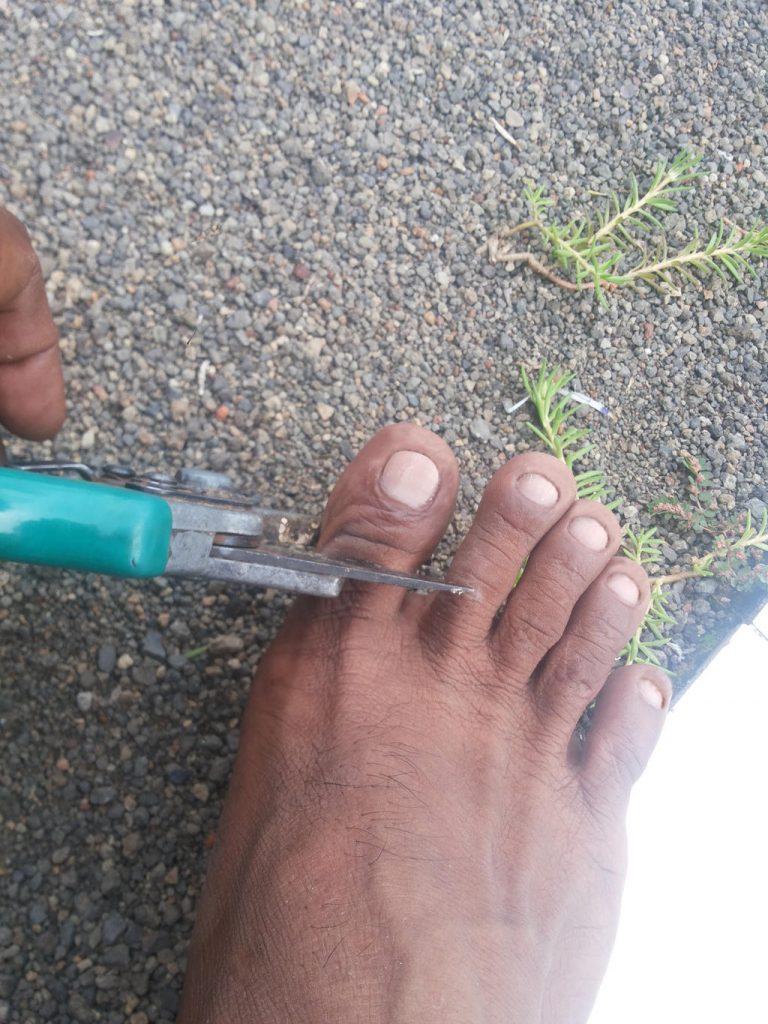
A myth spread around the country on the internet that desperate people were selling their toes for cash. The fake rumour gained such traction that the country’s Deputy Minister of Information, Kindness Paradza, went out to debunk it with street vendors in central Harare earlier this month.
As Zimbabwe’s official media documented the digital probe, the dealers took off their shoes one by one to show that they had all ten toes.
READ THIS NEXT: Groom plays shocking video of bride cheating with another man at wedding
Paradza declared the toes-for-money story was a hoax, as did local and foreign fact-checkers. Police later arrested a street vendor who now faces a fine or up to 6 months in jail on charges of criminal nuisance for allegedly starting the story.
However, it is undeniably true that Zimbabweans are increasingly struggling to make ends meet. According to government figures, Zimbabwe’s inflation rate has risen from 66 percent to more than 130 percent since the beginning of Russia’s war in against Ukraine.
Inflation has been rising around the world as a result of the conflict in Ukraine. As energy and food costs rise, consumer prices in the 19 European Union countries that use the euro currency increased by 8.1 percent in May, a new high. In April, annual inflation in the United States and the United Kingdom reached or approached 40-year highs of 8.3% and 9%, respectively. Turkey’s inflation rate exceeded that of Zimbabwe, with 73.5 percent in May, the highest in 24 years.
The impact of the Ukraine war on Zimbabwe’s already vulnerable economy is compounding concerns. In May, Finance Minister Mthuli Ncube informed Parliament that the conflict, “combined with our past domestic imbalances, has caused issues in terms of economic instability, as evidenced by currency volatility and spillover into pricing volatility.”
In early June, the Progressive Teachers Union of Zimbabwe tweeted that teachers “can no longer afford bread and other basics, this is too much.” Because their income in local currency has “eroded overnight,” the three main teachers’ unions are requesting that the government pay their wages in US dollars.
“The local currency is disintegrating due to rampant inflation,” economic analyst Prosper Chitambara told The Associated Press. “Individuals and businesses have lost faith in the local currency, putting pressure on demand for US dollars.” The Ukraine conflict is merely worsening a precarious position.”
According to the International Monetary Fund, many Zimbabweans are concerned that the country may revert to hyperinflation, which peaked at 500 billion percent in 2008. Plastic bags filled of 100 trillion Zimbabwe dollar banknotes were insufficient to purchase basic necessities at the time.
In 2009, President Robert Mugabe was obliged to form a “unity government” with the opposition and adopt a multi-currency system in which US dollars and the South African rand were recognised as legal tender due to the economic crisis.
Prices in local currency are frequently benchmarked to the rates for the American currency on the thriving illicit market, where most individuals and businesses obtain their foreign cash.
Cash dealers flood the streets and crowd shopping mall entrances across the country, brandishing wads of both local currency and US dollars.
Many Zimbabweans who earn in local currency, such as government employees, are obliged to buy dollars on the black market, where exchange rates are surging, in order to pay for goods and services that are increasingly invoiced in US dollars.
Retailers claim that the underground market’s escalating rates for US dollars force them to raise prices often, typically every few days, in order to restock.
Ordinary Zimbabweans are reverting to coping methods like skipping meals that they used during the hyperinflationary era. Others increasingly purchase food in smaller quantities, often in such little packaging that they are just enough for one meal. Locals refer to them as “tsaona,” which means “accident” in Shona.
The government “would not hesitate to act and intervene to cushion against price rises and currency rate volatility,” Ncube, the finance minister, said, promising better days ahead.
Many people are suspicious of the government’s promises, claiming that nothing short of a miracle will bring Zimbabwe out of its economic catastrophe. Even when they deal with ever-increasing prices, many people can’t help but make gloomy jokes about the situation.
“I still have all of my toes,” Harare resident Asani Sibanda said, “but it wouldn’t hurt to sell one.” “I’d still be able to walk without it, but my family would be able to eat.”






